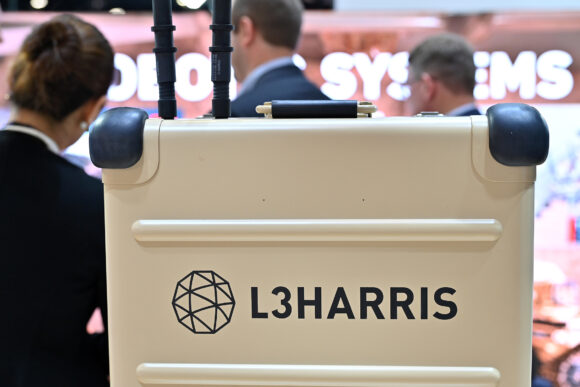A former director at a US military contractor that sells computer vulnerabilities pleaded guilty on Wednesday to stealing and reselling $35 million in trade secrets to a Russian cyber-tools broker whose clients include the Russian government.
Peter Williams, 39, worked at Trenchant, an L3 Harris Technologies Inc. subsidiary that develops hacking tools and describes itself as an “elite team of network operators, engineers and vulnerability researchers who are charged with building world-class computer security products,” according to the firm’s website.
He was accused of stealing “national-security focused software that included at least eight sensitive and protected cyber-exploit components,” which were meant to be sold exclusively to the US government and select allies, according to the Justice Department.
Williams’ voice broke when he pleaded guilty in Washington federal court. He answered “yes” or “no” to questions from US District Court Judge Loren AliKhan but otherwise stayed silent for the one-hour hearing.
The sales occurred between 2022 and 2025, when Williams improperly used his access to the defense contractor’s secure network to steal cyber exploits, according to the Justice Department. Williams, a 39-year-old Australian national, worked at Trenchant until August. Williams’ attorney declined to comment.
L3Harris also declined to comment on the matter. The Department of Justice didn’t respond to a request for comment.
Related: ‘Catastrophic’ Hack Underscores Public Defender Security Gaps
Williams stole and resold $35 million of cyber trade secrets from a US cleared defense contractor to a Russian government supplier, according to a Justice Department statement.
The changes each carry a statutory maximum of 10 years in prison and a fine of as much as $250,000 or twice the pecuniary gain or loss of the offense, the agency said.
The Russian cyber-exploits broker publicly advertises as a reseller to various customers, including the Russian government, according to the Justice Department, which didn’t name the alleged broker.
John Eisenberg, assistant attorney general for national security, said in the statement that Williams’ conduct “was deliberate and deceitful, imperiling our national security for the sake of personal gain.”
Williams allegedly resold the trade secrets in exchange for a promise of millions of dollars in cryptocurrency. He used the proceeds to buy himself “high-value items,” the Justice Department said.
In addition to a potential prison sentence, federal prosecutors are seeking $1.3 million in forfeiture from Williams. Court documents list Williams’ home, 22 luxury and replica watches, several pieces of high-end jewelry and funds spread across seven bank and cryptocurrency accounts. Authorities also seized a Louis Vuitton handbag and two Moncler jackets.
Patrick Wardle, a former US National Security Agency hacker, said the allegations represented “a big black eye” for Trenchant. He said the allegations raised questions about whether the company can be trusted to provide reliable hacking tools to sensitive government customers, and about exposing details such as the original government buyer and pricing of specific exploits.
John Scott-Railton, a senior researcher at Citizen Lab who studies hacking firms, called for increased Congressional oversight of the industry. He also cited a 2018 case in which a former employee of Israeli spyware vendor NSO Group allegedly stole and tried to sell source code.
Photo: The L3Harris company logo is displayed during the Security Equipment International (DSEI) at London Excel on September 09, 2025 in London, England. (John Keeble/Getty Images)
Was this article valuable?
Here are more articles you may enjoy.



 CFC Owners Said to Tap Banks for Sale, IPO of £5 Billion Insurer
CFC Owners Said to Tap Banks for Sale, IPO of £5 Billion Insurer  State Farm Adjuster’s Opinion Does Not Override Policy Exclusion in MS Sewage Backup
State Farm Adjuster’s Opinion Does Not Override Policy Exclusion in MS Sewage Backup  AIG’s Zaffino: Outcomes From AI Use Went From ‘Aspirational’ to ‘Beyond Expectations’
AIG’s Zaffino: Outcomes From AI Use Went From ‘Aspirational’ to ‘Beyond Expectations’  Lemonade Books Q4 Net Loss of $21.7M as Customer Count Grows
Lemonade Books Q4 Net Loss of $21.7M as Customer Count Grows 

